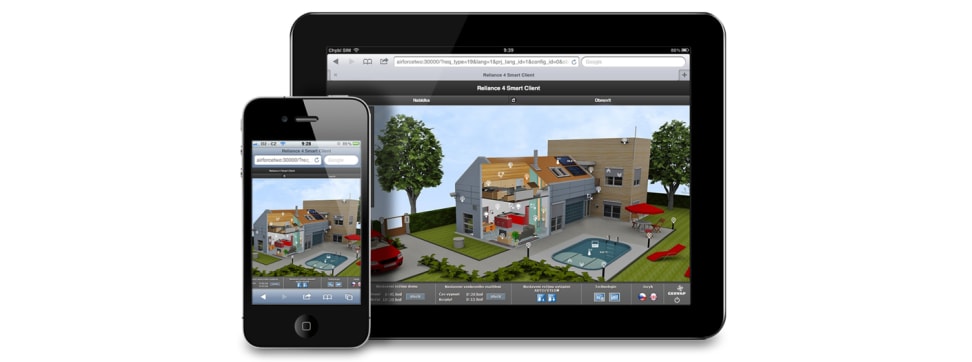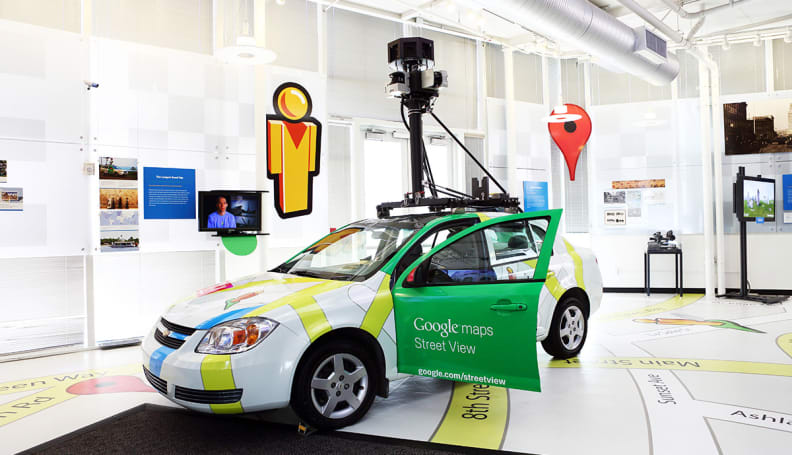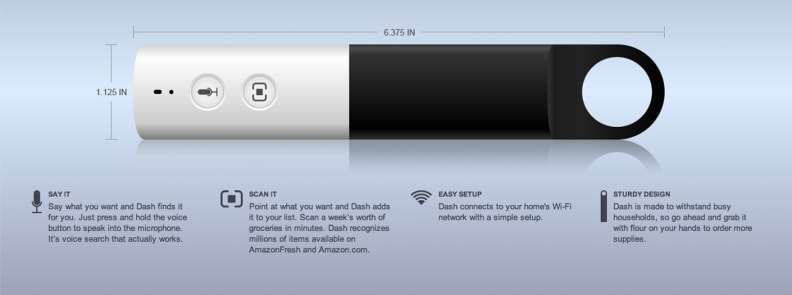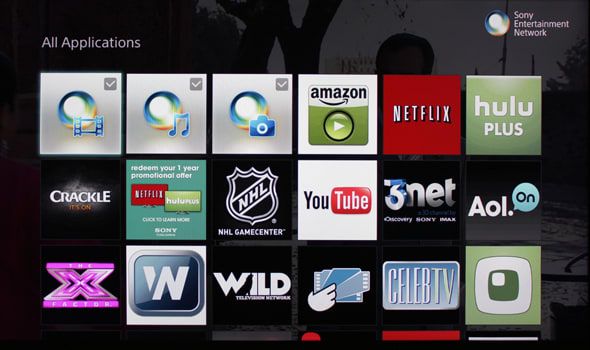Dear Microsoft, You Were Right About the Future
But you were also hilariously wrong about some things.
 Credit:
Credit:
Recommendations are independently chosen by Reviewed's editors. Purchases made through the links below may earn us and our publishing partners a commission.
Dear Microsoft,
It's 1999, and you're on top of the world. Windows 98 is the freshest operating system since, well, Windows 95. Your market cap just peaked at a record $618.9 billion, making you the most valuable company in the world. (You’ll never believe who breaks that record in 2012.) And your CEO, Bill Gates, is the wealthiest person on the planet. (Don't worry, he still is.)
Yes, you're trudging through a discomfiting antitrust lawsuit, but you're also gloating from a victory over Netscape in a nasty browser war that's left you in control of more than 90 percent the market. You're less than two years away from unveiling a revolutionary gaming system, and just months from making this guy your top dog.
And with all this going on, you've still managed to keep an eye on the future—specifically, the home of the future. So you've produced this little gem—a six-minute advertorial showcasing a fully automated, fully connected smart home.
Well, Microsoft, I'm writing to you from the future, and I can assure you that you're the most accurate prognosticator since Nostradamus. Aside from a crucial underestimation of the impact of mobile technology (“cell phones,” in the parlance of your time) and a blind spot for design (never your strong suit), your dream of the home of the future was spot on.
Let’s take a closer look.
Retinal/Fingerprint Scanners
“Her motion starts the entry process... She could also use a voice or fingerprint to be let in!”
Retinal scanners do exist in 2014, although they’re not often found on residential locks. The myris, from EyeLock, allows users to access their mobile devices through precision iris recognition. It even won a 2014 CES Editors’ Choice Award. More common are fingerprint scanners; the most successful example is the one built into the iPhone 5S. What's an iPhone 5S, you ask? Just know that it was built by your arch rival and is the best-selling “pocket PC” in the world. Yeah, ouch.
Smart locks are also finding their way into use, in both residential and commercial buildings. Brands like Kwikset, Goji, Lockitron, and August allow users to control locks remotely and even observe who's at the door through their mobile device (that term “mobile device” is going to come up a lot here—best get used to it).

Home Automation
“Control any room, from anywhere in the house!”
In the year 2014, there are all kinds of little gizmos that can automate your home. Belkin’s WeMo line may be the most well-known. These gadgets can remotely control, monitor, and automate your lights, television(s), heater, and even your Crock-Pot. Other gizmos like Dropcam can be used to keep your home safe from intruders. Some companies are focusing on more niche products. LIFX and Philips Hue, for example, allow owners to coordinate the hue and intensity the lighting in their space.
It’s actually a pretty cramped market right now, with a lot of players vying for the lead. So a few startups—like Revolv and SmartThings—are offering more organic, all-encompassing solutions for home automation.
But as you probably know back in 1999, mass connectivity requires standardization. To that end, both hardware and software players have come together to establish programming and engineering standards for what is tentatively known as the Internet of Things. (Yes, it's an awful name.)
Intelligent Personal Assistants
The stereo says: “Hi, hon, I’ll be home soon!”
In the future, there are probably too many ways to sync a home theater system with a mobile device. You could link the speaker through Bluetooth, or have your OS read incoming text messages directly to you. By “OS,” I mean an intelligent personal assistant like Apple’s Siri or Google Play. Actually, the most recent contribution to this fledgling A.I. market comes from you. For some reason, though, phone calls still sound terrible.
Pocket PCs
“She can check the entire family schedule on the pocket PC!”
There are way too many calendar apps to choose from, and most families just use group text messages or email to coordinate schedules. (Yes, email is alive and well in 2014.) And as for that “pocket PC?” We call them “smartphones,” and they can do a lot more than ask kids if they'll be home for dinner. For example, a lot of people use them to watch cute videos of cats.
GPS... in the Palm of Your Hand
“A map shows just where her husband’s car is at the moment!”
Every smartphone in 2014 comes with a GPS module. That’s right: In the future, you can use your phone to access satellite navigation systems and pinpoint exactly where you are on the planet.
In the year 2000, the Clinton Administration will order the discontinuation of GPS signal restriction by the U.S. military, thus opening up the market to consumer GPS products. These days, pretty much every computerized device—from phones, to PCs, to car infotainment systems—has a way to not only globally position itself, but orient users within a fully digitized globe complete with detailed maps and location-based information.
It’s so amazing that no one knows how to get anywhere from memory anymore, so people just follow their GPS directions—sometimes quite literally into the ocean.

Google's Street View car (Credit: Christophe Wu, Google)
On a more serious note, this—along with the massive proliferation of online data and general public internet use—will create quite a stir in the year 2013, when it is revealed that our own government has been spying on us through our email, cameras, web browsers, microphones, and GPS systems. (And just to reiterate, all of those are in the same device in 2014!) Sound crazy? It’s not science fiction—it’s the future.
Online Retail
“She scans them into an electronic shopping list!”
You know that online bookstore, Amazon, that’s making a splash in the “e-commerce” market right now? Well, in 2014, it’s one of the biggest retailers in the world—a purveyor of not only of every retail item you can imagine (including groceries), but also web services, cloud storage (don't worry about that for now), digital media, virtual books, and now smartphones. A few years from now, Amazon may even pioneer same-day deliveries with a massive fleet of unmanned aerial drones. Sort of like The Jetsons.
As for that little gadget that scans barcodes to add products to an electronic shopping list? Just a couple months ago, Amazon unveiled Dash, a wand that lets you do precisely that. You can also speak directly into the device to build or modify your shopping list.
There is no connected waste basket. That’s just silly.

Amazon Dash
Cable vs. Broadband
“The TV wins out again.”
True, just so long as you’re not confusing “TV” with “cable.” Cable providers in 2014 are also internet providers (ISPs), and have managed to more or less monopolize local markets. There is little competition, and with backing from Washington they’ve worked strenuously to abolish net neutrality.
Cable companies remain exempt from U.S. common carrier classification, which has allowed them to throttle broadband service to speeds on par with Russia and Slovakia, avoid necessary infrastructure upgrades, and jack up subscription prices to rates that are nearly double those found in Europe.
The thing is, though, their grip on the cable TV market is beginning to slip. Whether content with internet-based entertainment or simply fed up, consumers are increasingly cutting the cord. It’s no wonder they’ve plummeted below oil companies to become the most despised corporations in the country. The future is strange.
Smart Appliances
“The stove can send a notification to anyone, anywhere in the house.”
Yep, but not through the TV. LG HomeChat, which recently launched in South Korea, allows users to remotely control and monitor their refrigerator, washing machine, or oven with a smartphone. They can even send a text message to their appliances to give them instructions (e.g. “start heavy wash cycle.”) Whirlpool has a similar line of products, called 6th Sense Live, which includes a dishwasher, washing machine, dryer, and refrigerator.
Smart TV
“Dad pauses the news… He can choose what to watch from any different source.”
As mentioned, the cable companies are desperate to hold onto their subscribers. But the television market itself is alive and kicking thanks to Smart TV services and web-based entertainment.
Every manufacturer from LG (Korean companies are huge nowadays) to Apple has a “smart” offering, allowing users to peruse the web (sorry: “surf the net”), watch movies through streaming video services, and play video games. In a few years, you'll launch the Xbox, which will gradually transform into a complete home entertainment system and remain fiercely competitive with Sony’s next-generation PlayStation consoles.

The Sony Bravia Smart TV platform.
Smart Thermostat
“The PC has control over heating, ventilation, and air conditioning.”
Once again, that PC is now in the palm of your hand. Smart thermostats like Nest, which was recently bought by Google (yes, that scrappy search engine startup in Mountain View), are beginning to take off. But the vision of a fully automated smart home is still mostly reserved for niche technophiles—and those with tons of cash to spend.
e-Readers
“Mom’s reading a wireless e-book.”
Amazon has pretty much got this market cornered. But opinions vary over whether e-readers are better than print. Until manufacturers figure out how to reduce glare on standard mobile displays (perhaps with OLED?), e-readers using electronic paper will remain separate from tablets and smartphones.
Cortana
“Astro, call Chris in the car!”
Forget Astro, Microsoft. It’s Cortana.
Hero image: Wikimedia Commons, "Bretislav Valek" (CC BY-SA 3.0)

